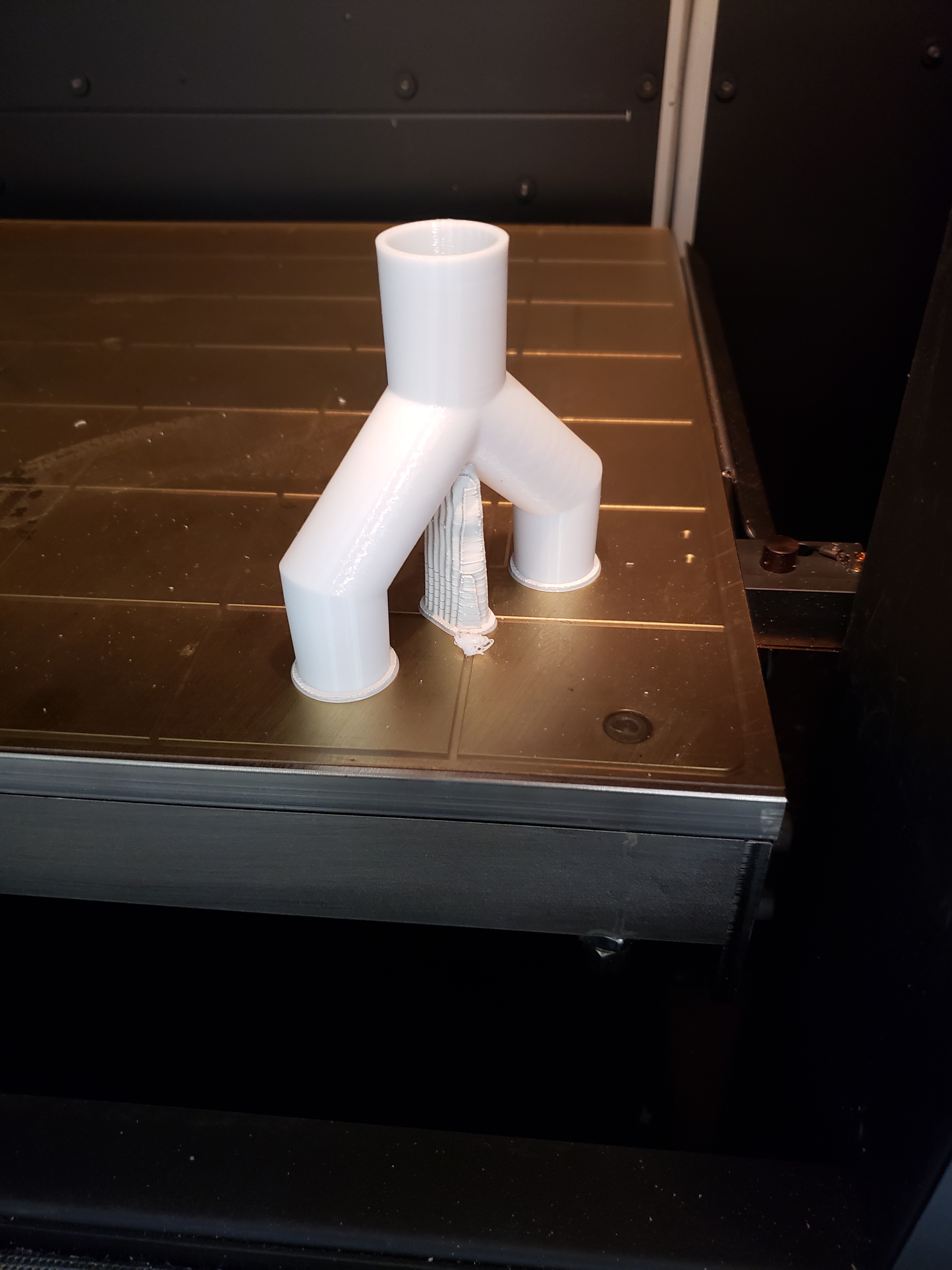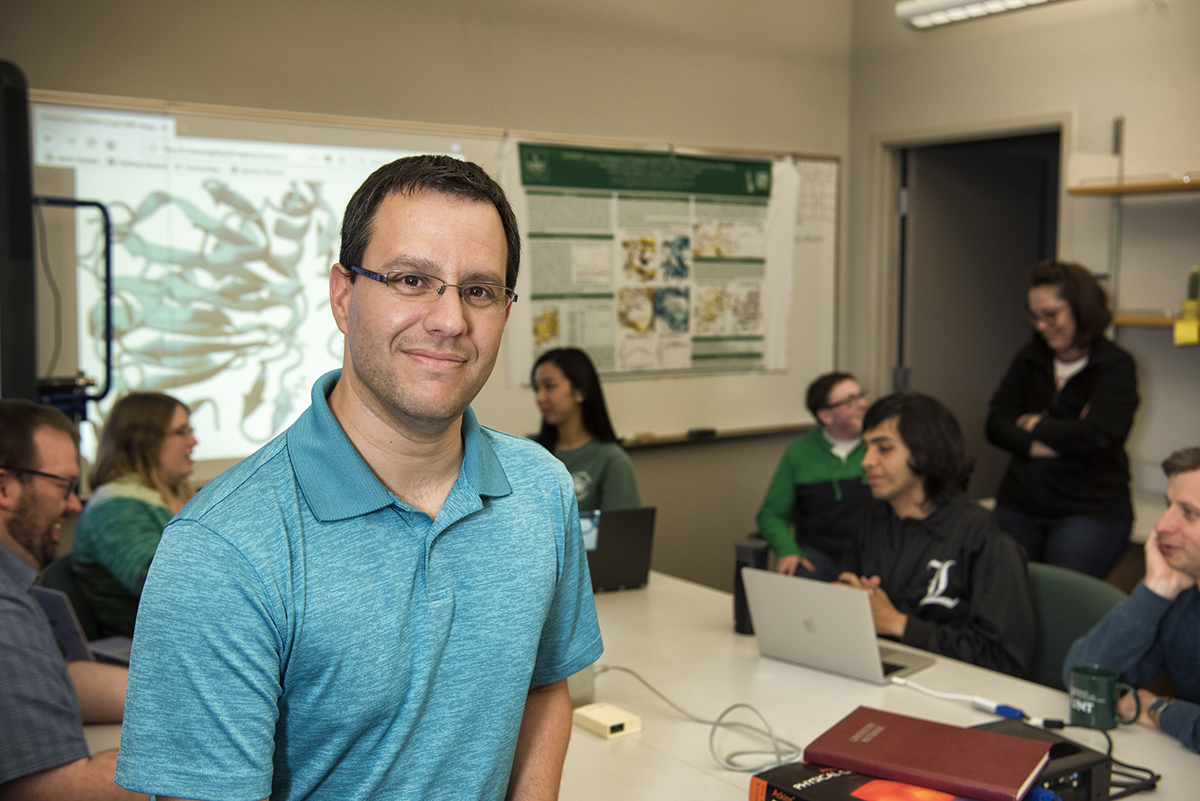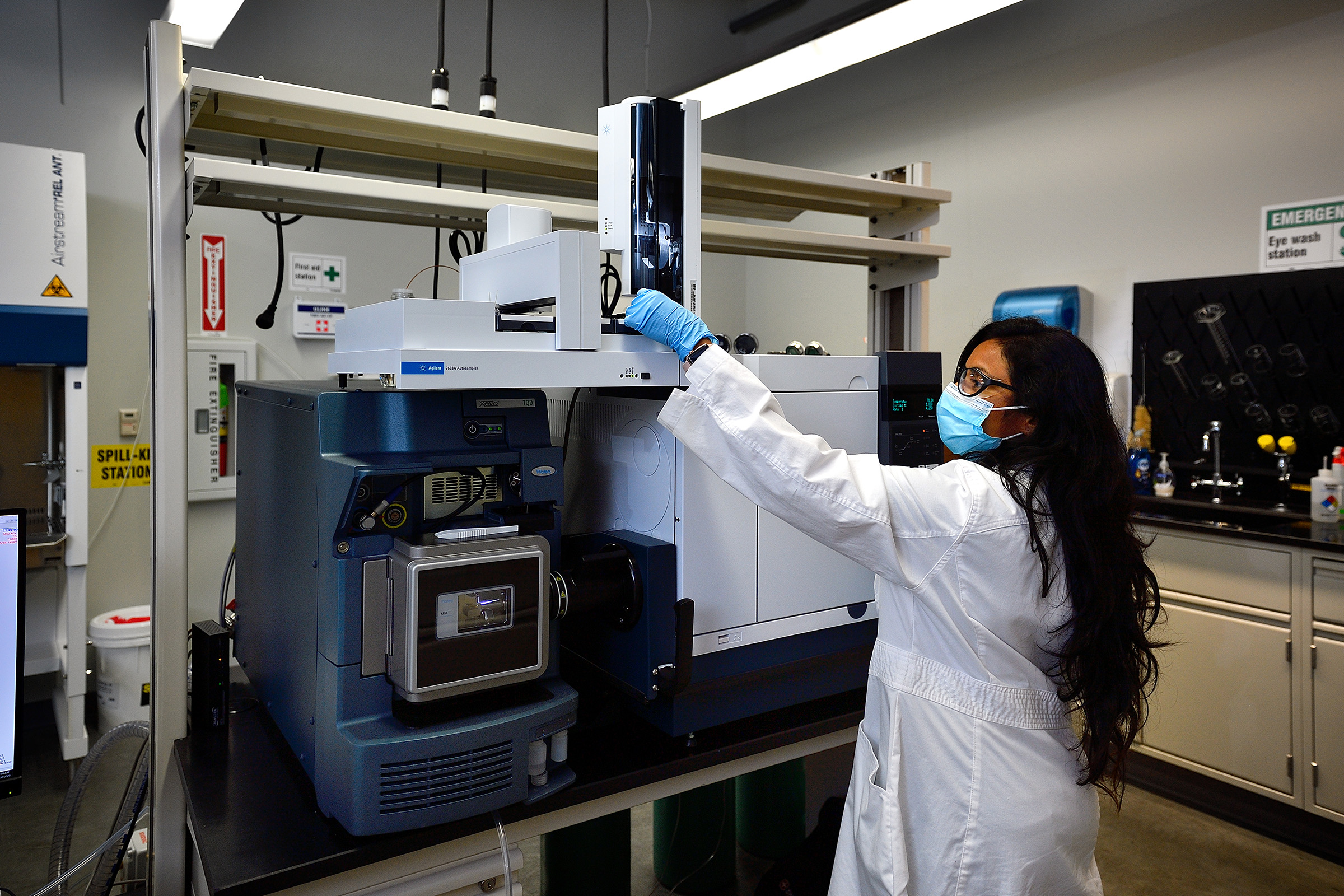Research
UNT graduate works to protect soldiers in the field through drone research
Since beginning college, University of North Texas student Kelly Jacques wanted to use her engineering talents to minimize the need for soldiers on the battlefield. And now, thanks to a scholarship from the U.S. Department of Defense, she is getting her chance....
UNT creates 3D-printed ventilator splitters for COVID-19 patients

Media download photos/video here.
DENTON (UNT), Texas — The University of North Texas is using 3D printing technology to make ventilator splitters that will allow doctors to use a single ventilator to treat two patients.
In response to the possible need for more ventilators to treat critically ill COVID-19 patients, a team from UNT’s College of Engineering collaborated to adapt a design and manufacture ventilator splitters in the college’s digital manufacturing lab. ...
UNT student’s research a breath of fresh air for astronauts
Alyssa Sarvadi, a recent graduate of the University of North Texas College of Engineering, believes they have found a better way to clean the air aboard space ships. And, NASA agrees.
Sarvadi and their mentor, associate professor of engineering technology Huseyin Bostanci, are part of a 10-year-old NASA program that sponsors graduate students and their professors who show significant potential to contribute to the space agency’s goal of creating innovative new space technologies.
“...
UNT computational chemists use supercomputer simulations to test potential COVID-19 drugs

University of North Texas professor and computational chemist G. Andrés Cisneros, along with his research group, are running computer simulations using four U.S. supercomputers, including the world’s most powerful, Summit, at the Oak Ridge National Lab in Tennessee, to investigate inhibitor mechanisms of existing drugs and provide insights that could serve to improve treatment options for COVID-19.
Cisneros’ group, in collaboration with a team of scientists from both France and two other institutions in the United States, are...
UNT utilizes advanced 3-D printing labs to produce face shields
At the University of North Texas, engineers and artists are working together to create face shields for faculty and students to use once laboratories on campus start to reopen.
“Our students and faculty follow strict safety protocols in our laboratories, which means they must use safety equipment such as masks, gloves, face shields, etc.,” said Mark McLellan, vice president for research and innovation. “But, as everyone knows, there is a shortage of certain equipment due to COVID-19. Fortunately, we have the tools and the talent to make our...
Three UNT researchers awarded NSF CAREER grants for excellence in their fields
Three University of North Texas researchers in linguistics, physics and mathematics were awarded more than $1.5 million total in grant money through the National Science Foundation’s Faculty Early Career Development Program.
“While it’s our faculty who won the awards, our students will also benefit from a true hands-on experiential learning experience,” said Mark McLellan, vice president for research and innovation. “Alexis...
UNT-led team collaborates with NASA on Advanced Air Mobility project
In the next 10 years, low-flying traffic over cities in the United States is expected to increase significantly and a University of North Texas-led team of academic and industry experts is working together to ensure safe skies through proper communication and coordination.
“Our team is developing the Resilient Air Space Operations and Services platform which will allow low-flying traffic, both manned and unmanned, to receive data from multiple sources, sense their surroundings and automatically share information about airspace hazards with...
UNT’s modern-day alchemist takes first steps toward transforming methane to methanol
Finding a method for large scale, inexpensive transformation of methane into methanol is like turning lead into gold, according to Tom Cundari, a Regents Professor of chemistry at the University of North Texas.
Methane is a primary component of natural gas and, like natural gas, must be cooled and pressurized into liquid form to be shipped via pipeline or conveyance. This process is expensive and can be hazardous. But, methane’s molecular structure can be changed into a liquid “cousin”...
UNT professor finds citizen scientists make excellent resources
From tracking the amount of rain in their backyards to monitoring the water quality in local streams, citizen scientists have collected data for as long as there has been curiosity. And, it turns out, their data can be just as valid as that collected by professionals.
Kelly Albus, a research scientist at the University of North Texas, spent four years as a Ph.D. student sifting through decades of data collected by citizen science groups and comparing it to that collected by professional agencies. The goal of her project was to...
LaCore Labs’ $1 million dollar gift establishes research innovation center at UNT

DENTON (UNT), Texas — A new collaboration between LaCore Labs and the ...




